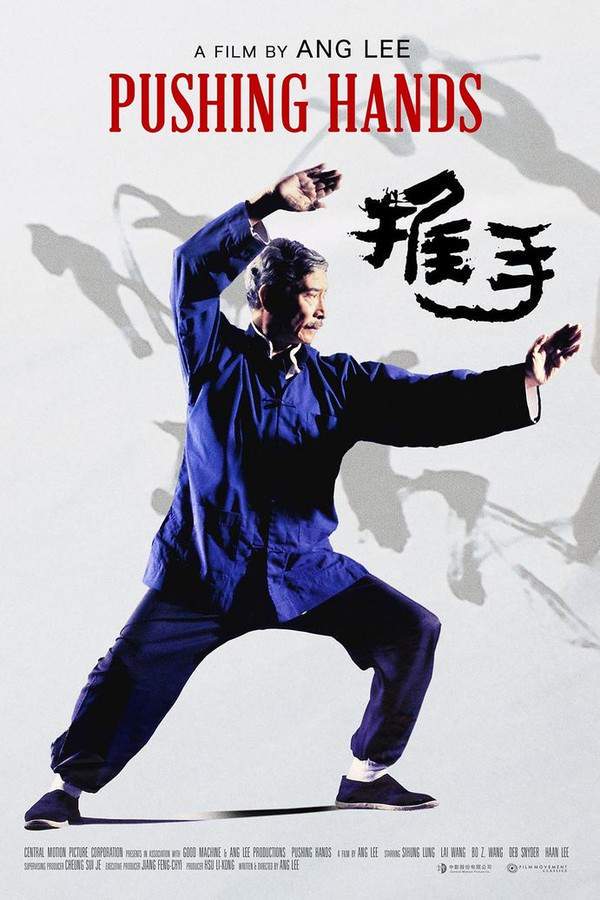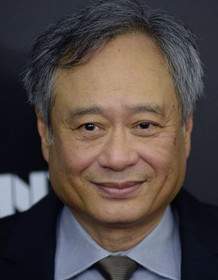Pushing Hands (1991) 1995

A traditional Chinese martial arts master, Mr. Chu, moves to New York City to live with his son and daughter-in-law. He struggles to understand their Americanized lifestyle and find common ground, leading to humorous clashes rooted in cultural differences and generational divides. Seeking a new sense of purpose, Chu begins teaching tai chi to local schoolchildren. Through this, he finds a way to connect with his family and community, gracefully blending tradition with modern life.
Does Pushing Hands (1991) have end credit scenes?
No!
Pushing Hands (1991) does not have end credit scenes. You can leave when the credits roll.
Meet the Full Cast and Actors of Pushing Hands (1991)
Explore the complete cast of Pushing Hands (1991), including both lead and supporting actors. Learn who plays each character, discover their past roles and achievements, and find out what makes this ensemble cast stand out in the world of film and television.
External Links and Streaming Options
Discover where to watch Pushing Hands (1991) online, including streaming platforms, rental options, and official sources. Compare reviews, ratings, and in-depth movie information across sites like Metacritic, Rotten Tomatoes, Wikipedia or Common Sense Media.
Take the Ultimate Pushing Hands (1991) Movie Quiz
Challenge your knowledge of Pushing Hands (1991) with this fun and interactive movie quiz. Test yourself on key plot points, iconic characters, hidden details, and memorable moments to see how well you really know the film.
Pushing Hands Quiz: Test your knowledge about the themes and characters of 'Pushing Hands' (1991).
What martial art does Chu practice?
Full Plot Summary and Ending Explained for Pushing Hands (1991)
Read the complete plot summary of Pushing Hands (1991), including all major events, twists, and the full ending explained in detail. Explore key characters, themes, hidden meanings, and everything you need to understand the story from beginning to end.
The tale unfolds with the Chinese tai chi master, Chu, embarking on a journey to the United States to be with his son, Alex, and his family. The challenge of communication looms large as Chu struggles with English, while his American daughter-in-law, Martha, does not speak Mandarin—a barrier that often leads to misunderstandings. They navigate their way through this linguistic maze with the help of Alex, their bilingual bridge. However, Martha finds Chu’s presence to be an unwelcome disruption as it hinders her progress on her second novel.
Every Sunday, Chu passionately teaches tai chi at a local Chinese cultural center, where he encounters Mrs. Chen, another determined immigrant hailing from Beijing, who shares her culinary skills with eager students.
As the story deepens, we witness the escalating conflict between Chu and Martha, alongside Alex’s internal battle between his duties as a son and the demands of everyday life. Tensions reach a peak one evening when, against Martha’s wishes, Chu decides to take a solitary walk, igniting a family crisis. In the wake of this incident, Chu makes the bold choice to move out, seeking to live independently.
He secures a job as a dishwasher in a modest Chinatown restaurant, only to endure discrimination at the hands of the owner. However, in a gripping display of determination and skill, Chu draws upon his tai chi abilities to stand his ground during a confrontation, earning newfound respect within the community.
As the narrative approaches its conclusion, Alex begins to reassess his perceptions of his father and seeks to mend their fractured relationship. Even though Chu is adamant about his desire for solitude, Alex voices his feelings of love and encourages his father to visit often and engage with his grandson. In the end, Chu and Mrs. Chen continue their individual quests for freedom and independence in the vibrant tapestry of Chinatown.
Quick Links: Summary, Cast, Ratings, More

What's After the Movie?
Not sure whether to stay after the credits? Find out!
Explore Our Movie Platform
New Movie Releases (2025)
Famous Movie Actors
Top Film Production Studios
Movie Plot Summaries & Endings
Major Movie Awards & Winners
Best Concert Films & Music Documentaries
© 2025 What's After the Movie. All rights reserved.











